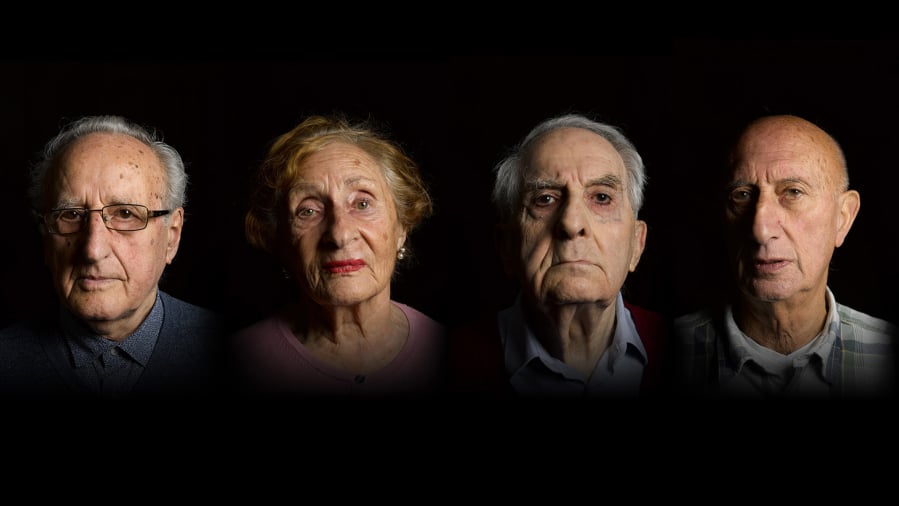WHAT IT’S ABOUT: To coincide with Yom HaShoah, or Holocaust Remembrance Day, this “Frontline” profiles some half dozen survivors, most of them children when imprisoned at various death camps across Germany and eastern Europe. Now mostly in their 80s, living in Britain, they speak of a lifetime of coping with memories. They include Frank Bright, Lydia Tischler, Manfred Goldberg, Ivor Perl, who returns to Auschwitz with his daughter; Maurice Blik, the British sculptor whose father is reflected in his work; Susan Pollack, who recalls the last fleeting words to her mother; and Anita Lasker-Wallfisch, who spoke before the German Bundestag, warning against the rise in anti-Semitism. Directed by Arthur Cary, this film is based on the fact that “it will not be long before there are no firsthand survivors alive,” as one of them says, and it’s important to record this testimony for future generations.
MY SAY: There are believed to be fewer than 100,000 survivors of death camps, ghettos and those “in hiding,” according to the Conference on Jewish Material Claims Against Germany, which tracks such numbers. Most live in the United States and in Israel. Per the conference, the average age of the youngest survivors is around 74 — babies at the time of liberation.
These are key figures to keep in mind as you watch because “The Last Survivors” — excellent, moving and undeniably important as it is — doesn’t bother with the numbers. This film doesn’t want to get caught up in the weeds of statistics or definitions. Instead, here are the memories of a few of those survivors who have only recently begun to speak of them, or come to terms with their past.
But numbers at least offer perspective and convey a little of the brute urgency to the task of remembrance. After all, memories live only as long as those who have them.



